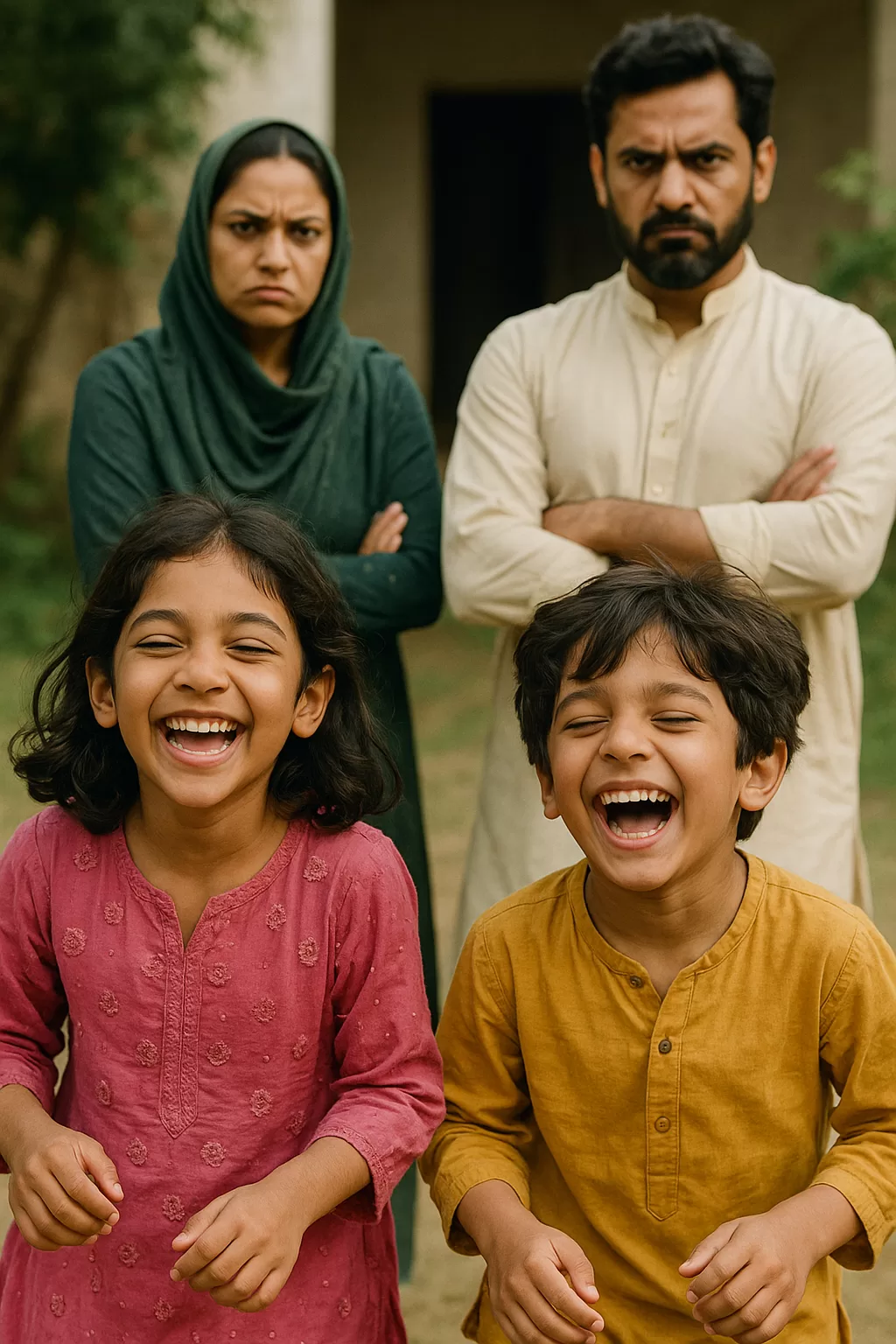By Sauleha Musharraf for Invisiblites
I just heard a phrase “rona bandh karo warna thappad parega”(stop crying or you will get slapped) and watched how that child stimulated within seconds by controlling his tears. I was not shocked at the moment, but that moment compelled me to reflect deeply on the way of raising children in our society.
And as usual that moment was justified by the phrase “yeh tou tarbiyat ka hissa hai” (this is part of upbringing) that is often used to legitimize what is, in reality, a normalized cycle of violence. In this manner, children learn to associate silence with survival, abuse with love and pain with punishment either in the classroom or home. From the early years, children endure psychological neglect and emotional abuse behind these closed doors, and we continue to look away instead of resistance.
According to the World Health Organization (WHO), six in ten children under five globally suffer physical or psychological violence at the hands of caregivers. In the case of Pakistan, comprehensive national data is lacking, however, anecdotal evidence and NGO’s reports point to a deeply ingrained pattern in which abusers are protected not only by silence, but by cultural acceptance.
In schools corporal punishment remains common, with teachers striking students or humiliating them in front of their classmates. Whereas, at home emotional abuse is labeled as discipline that often crosses the line into cruelty, such as beating, shaming, threats, and neglect is rarely acknowledged. And worse is that a child is praised for staying silent after being humiliated with the phrase “acha bacha” and learns that silence equals virtue.
In many Pakistani homes, parenting often focuses on controlling behavior rather than nurturing growth. Children are often raised through a pattern of rewards and punishments that shape behavior through repetition rather than reason. As evident from the fact that a child is rewarded with favourite food for those who didn’t speak at dinner, rather than telling them why speaking at dinner is not good. Over time, this quiet system trains children into a life of survival, blind obedience and silence.
On the other hand, although corporal punishment is legally prohibited, its enforcement is weak. Many schools operate without child protection policies, compliant systems, or access to psychological support. Meanwhile, teachers often receive little to no training in nonviolent communication or trauma sensitive approaches to discipline, and fall back on outdated and harmful methods.
Beneath the surface lies a troubling truth, that educators of the time are more concerned with their employment status rather than focusing on raising a good and healthy nation. It is evident from the fact that one teacher from a private school in Karachi shared anonymously “if we speak up, we risk our jobs”, on the other hand one of the well-meaning educators sounds like a blind eye, stating that “it’s not our business”. If they refuse to take responsibility, who will? This collective silence, driven by fear and apathy emboldens abusers and isolates victims.
Consequently, child maltreatment leaves both seen and unseen wounds. As studies show it can harm brain development, cause long term mental health problems, and raise the chances of future violence, whether as a victim or perpetrator. Survivors often struggle with anxiety, depression, drug addiction, or leaving school early. The financial impact is also heavy, with costs linked to medical care, lost education, and lower work productivity. However, the greatest loss is human wasted potential, broken trust, and cycles of pain passed down through generations. It is time to challenge the norms that glorify harsh parenting or normalize silence. “We turned out fine” is no longer an acceptable excuse.
In Pakistan this must begin with schools not as part of the problem, but as part of the solution. Teachers must be trained in positive discipline techniques and basic child psychology to foster safer learning environments. Schools should establish confidential reporting systems, giving students a safe space to speak up without fear. Life skills and emotional education need to be made part of the curriculum, helping children understand and express their feelings. At the same time, it is crucial to raise awareness among parents and communities about the fine line between discipline and abuse, and the lasting harm when that line is crossed.
Every child has a right to safety, dignity, and respect. No matter if they are in slum school or a suburban home, no child should fear the adults who are supposed to safeguard them. Ending violence requires more than just legal bans; it demands a deep cultural shift in how we raise and respond to children. We must pay attention not only when children find the courage to speak, but also when they fall silent, because sometimes, silence carries the loudest plea for help.
The author is a writer, researcher and educationist, passionate about inspiring minds and igniting change. Through words, inquiry and education, she strives to foster a more inclusive, creative and upgraded society that values diversity and accountability. She is an English graduate and developed her research and writing expertise by working with platforms like The Diplomat Insight and ISPR Hilal magazine.
Photo credits: Sora
